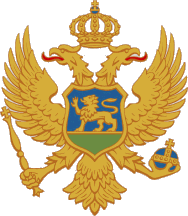That a Serb Question in Yugoslavia was really acute problem became clear on April 24th, 1987 [...]
Podgorica
Djukanovic’s motives are fairly transparent [...]
A new 1991 year started with a fear of the escalation of the political conflicts into a...
Under the unconstitutional law, religious communities must prove the ownership of property built before 1918, all of...
The real reasons for this were transparently political. Vladika Artemije was punished for his forthright opposition to...
This process began under Yugoslav communism, but, in this process, it is important to highlight the geopolitical...
Frankly, adding Montenegro to NATO is ridiculous. New York City would be a more useful NATO member....
The NATO war on Yugoslavia which culminated in the 78-days bombing of historic cities and infrastructures –...
After declaring the local dialect of Serbian as the new “Montenegrin” language in its first-post independence constitution...
Although Montenegro became independent in 2006, it took only until December 2009 for the country to reach...
Although the idea of a Greater Albania may seem like an exaggerated conspiracy, to the Serbian people...















